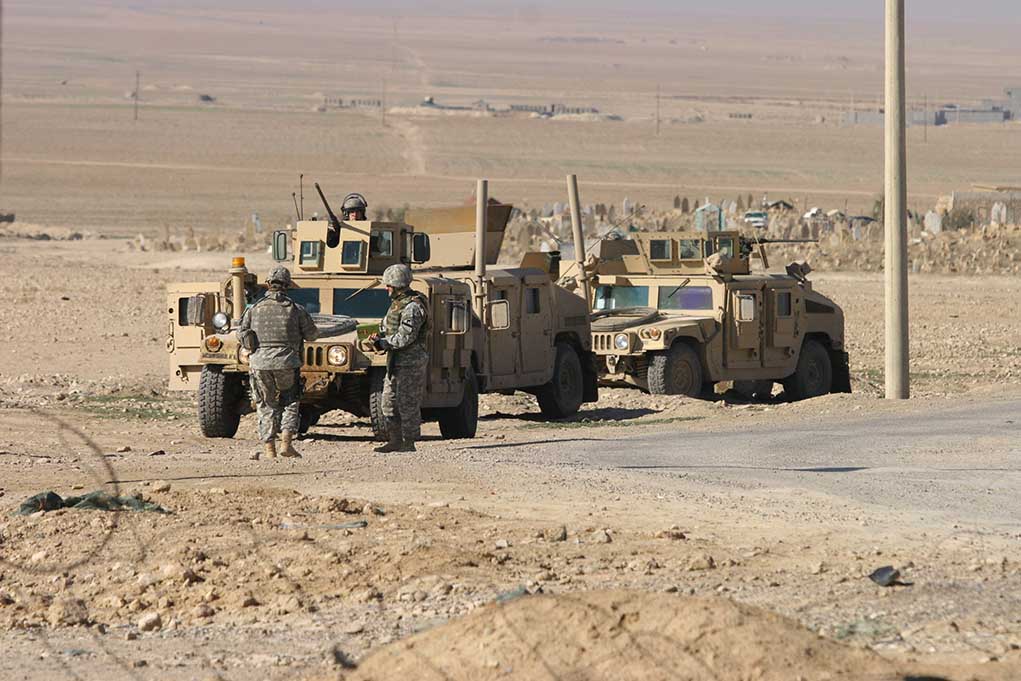
President Trump is contemplating a major strategic shift by potentially withdrawing 4,500 U.S. troops from South Korea, raising questions about America’s military footprint in a region directly threatened by an increasingly erratic North Korea.
Key Takeaways
- The White House is considering relocating 4,500 U.S. troops from South Korea to other Indo-Pacific locations, including Guam
- South Korea’s Defense Ministry claims no official discussions have taken place regarding troop withdrawals
- The proposal is part of an informal policy review on North Korea that has not yet reached President Trump
- This potential realignment comes as North Korea faces military embarrassment with a newly commissioned warship capsizing
- Any troop reduction could signal changing U.S. priorities and raise concerns among regional allies
Strategic Realignment in the Indo-Pacific
According to The Wall Street Journal, the White House is actively considering the relocation of 4,500 American troops from South Korea to other strategic positions throughout the Indo-Pacific region, with Guam being a primary destination. This potential move represents approximately 16% of the current 28,500 U.S. troops stationed in South Korea, and marks a significant shift in America’s regional military posture. The proposal comes amid President Trump’s ongoing assessment of U.S. overseas commitments and his administration’s focus on optimizing defense resources to counter emerging threats in the broader Indo-Pacific theater.
Despite these reports, South Korea’s Defense Ministry has publicly stated that no official discussions regarding troop withdrawals have occurred with the Pentagon. The ministry emphasized the critical importance of the continued American military presence for maintaining stability in the region. The lack of official communication suggests this initiative may still be in preliminary stages, though its mere consideration has already sparked speculation about changing American priorities in East Asia.
South Korean Concerns and Alliance Dynamics
The South Korean government has responded to the reports with measured diplomacy while clearly communicating the value they place on the U.S. military presence. The potential withdrawal comes at a sensitive time, as North Korea continues its aggressive posturing and weapons development programs. Any reduction in American forces could be interpreted as weakening the deterrence factor that has helped maintain an uneasy peace on the Korean Peninsula for decades.
“As the core strength of the South Korea-U.S. alliance, the USFK, alongside our military, has contributed to the peace and stability of the Korean Peninsula and in the region by maintaining a firm combined defense posture and deterring North Korea’s invasion and provocation,” South Korean Defense Ministry shared.
The ministry further committed to ongoing cooperation with their American counterparts, stating: “We will continue to cooperate with the U.S. side to advance in such a direction.” This diplomatic language masks what is likely significant concern within South Korean defense and political circles about any reduction in America’s military footprint, especially as North Korea continues to demonstrate both aggression and incompetence in its military endeavors.
North Korean Military Embarrassment
Ironically, this discussion of American troop reductions comes as North Korea’s military capabilities have been called into question following a humiliating incident where a newly commissioned warship capsized during its launching ceremony. The event, which reportedly enraged Kim Jong-un, highlights the stark contrast between North Korea’s military ambitions and its actual capabilities. Kim reportedly blamed “criminal carelessness” for the incident, which exposed significant procedural and professional gaps in North Korea’s naval development program.
Trump’s Consistent Position on Foreign Defense Contributions
The consideration of troop withdrawals aligns with President Trump’s long-held position that American allies should bear more financial responsibility for their defense. During his previous term, Trump characterized the U.S.-South Korea alliance as “unfair” and had suggested troop withdrawals unless South Korea increased its financial contributions to support the American military presence. The current proposal, while part of a broader strategic review, appears consistent with the President’s emphasis on more equitable burden-sharing arrangements with allies.
While the Pentagon has not officially commented on the reports, the proposal is reportedly part of an informal policy review on North Korea that has not yet been presented to President Trump. If implemented, such a move would represent one of the most significant changes to the U.S. military posture in East Asia in decades and could potentially reshape regional security dynamics at a time when China’s influence continues to expand and North Korea remains unpredictable despite its operational limitations.




